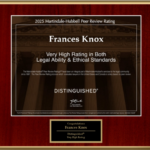Property crime is a legal term for a variety of criminal offenses that involve damage or theft of property. This includes crimes like burglary, theft, vandalism, and arson. If you find yourself accused of a property crime, it is crucial to understand how to mount an effective defense. This article discusses some of the strategies that can be used when Defending Property Crime Charges. These strategies are often employed by specialized law firms such as the Knox Law Center in Charlotte, NC, a reputed institution known for its criminal defense advocacy, helping individuals navigate the intricacies of the legal system.
Understand The Nature of The Charge
Your first step when defending property crime charges is gaining a thorough understanding of the nature of the accusations against you. Property crimes can range from lesser offenses, such as small theft or trespassing, to more severe charges, such as grand theft or arson. Understanding the specific charge and its implications will heavily influence the defense strategy employed by your lawyer.
Set Up a Solid Legal Defense
Building a robust defense against property crime charges requires a multi-step approach. Here are some steps you can take, ideally under the guidance of a seasoned legal professional like the lawyers at the Knox Law Center:
- Gathering Evidence: It’s critical to gather all the relevant evidence that could help your defense. This may include things like surveillance footage, eyewitness statements, documents, and more.
- Witness Interviews: If there are witnesses to the incident, they can play a critical role in your defense. Your lawyer can conduct interviews to gather their testimonies and establish your innocence.
Scrutinize The Prosecution’s Evidence
An important part of defending against property crime charges involves scrutinizing the evidence provided by the prosecution. This includes checking if the evidence was obtained legally, if it’s relevant to the charges, and if it’s reliable. By critically examining and challenging the prosecution’s evidence, you can cast doubt on their case and strengthen your defense.
Evaluate and Use Appropriate Defenses
The choice of defense largely depends on the nature of the property crime charges against you. Here are some commonly used defenses:
- Lack of Intent: Most property crimes require the perpetrator to have an intent to commit the crime. If you can demonstrate that you had no intention to commit the crime, this could be a viable defense.
- Duress or Coercion: If you were forced or threatened into committing the crime, duress or coercion could be used as a defense mechanism.
- Insufficient Evidence: You can argue the prosecution lacks enough evidence to prove beyond a reasonable doubt that you committed the crime.
Hire an Experienced Defense Lawyer
When defending property crime charges, having a skilled and experienced defense attorney on your side can make all the difference. An experienced lawyer, such as those working at Knox Law Center, will be familiar with local laws and court procedures and can guide you through the complexity of the legal process.
They can help prepare your defense, argue your case, challenge the prosecution’s evidence, negotiate with the prosecutor, and represent you in court. The kind of representation you get can potentially change the outcome of your case, making it crucial to hire a lawyer who specializes in defending against property crime charges.
Final Thoughts on Defending Property Crime Charges
With the right strategy and legal support, it’s possible to mount a strong defense against property crime charges. Remember, it’s crucial to consult with an attorney as soon as possible. The experienced lawyers at the Knox Law Center are ready to help individuals in Charlotte, NC, and are well-equipped to handle property crimes charges.
Keep in mind that while this information does provide insight into the subject matter, it is not legal advice. It is recommended to seek professional legal assistance when dealing with such charges. Stay strong, hold your rights close, and work closely with your lawyer to ensure the best possible outcome.
Read reviews and more at Knox Law Center’s Google Business Profile. Then, book a consultation.






